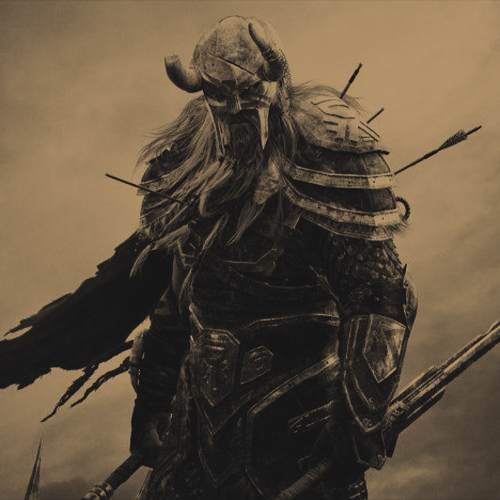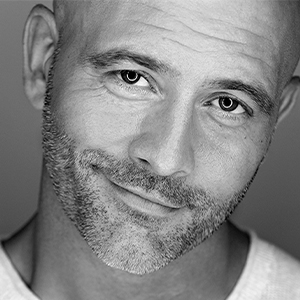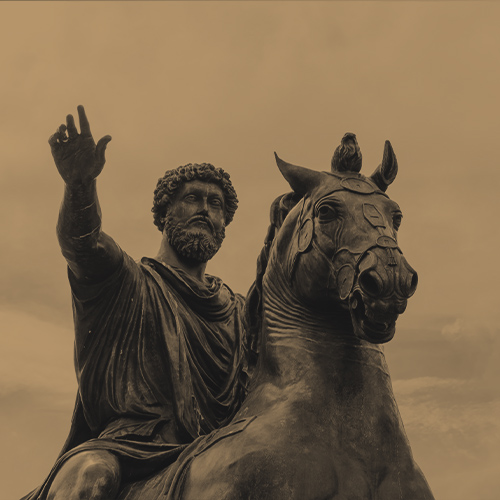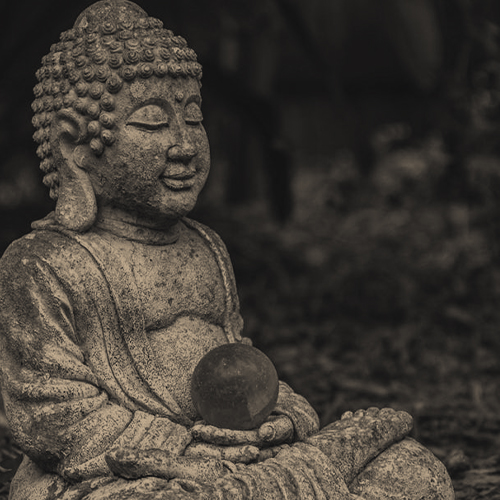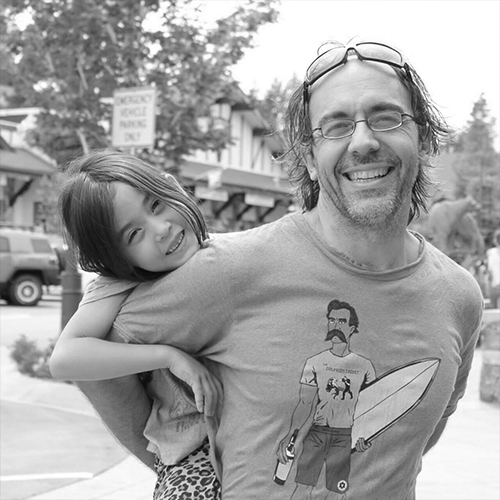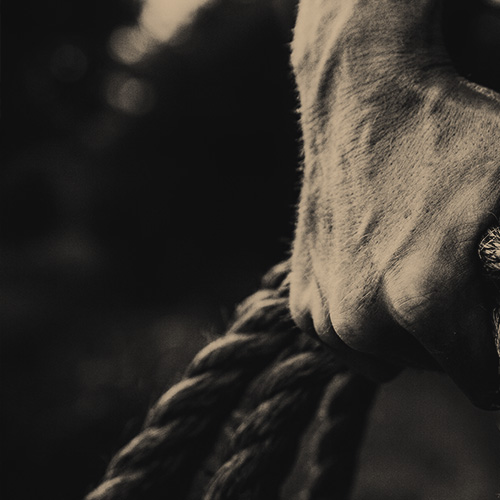The world is a battlefield, are you prepared? This week on Acta Non Verba I’m sharing the key lessons that you should know in order to be ready when Adversity happens in your life. In this episode I’m breaking down the difference between warriors and warrior culture, the three criteria that separate warriors from the rest of society, and how warrior philosophy teaches you to live a life of deeds, not words.
Episode Transcript:
00:32
I’m Marcus Aurelius Anderson, and this is another episode installment of Acta Non Verba’s Warrior Wisdom. In these shorter solo episodes, I’ll highlight lessons from warriors past and present, from all kinds of settings, from the battlefields of Italy, Greece, and Japan.
00:59
to the more modern day warfare, including tactics seen in business, society, and culture. I’ll also be sharing lessons based on my own learnings and experiences. The reality is this, the world is a battlefield, and to not master these lessons leaves you grossly unprepared for the adversity that you will inevitably face in the future. Steven Pressfield, the legendary author of Gates of Fire and the War of Art, wrote famously in his book,
01:28
warrior’s ethos, quote, wars change, warriors don’t, end quote. Now everybody seems to be throwing around the word warrior right now, but what does that really mean? I’m sure if you asked a thousand people, you would get a thousand different answers. So I’ll start with the words origins and common definitions. The word warrior first appears in English in the 14th century with this origin coming from an old northern French term meaning soldier.
01:55
Today, the Webster Dictionary definition of warrior reads, a person experienced in warfare. A more broader definition would be, a person engaged in some struggle or conflict. There are many fans of the warrior culture. They watch all the typical warrior movies like 300, Troy, Braveheart, and watch similar series on Amazon and Netflix. They have all the newest high speed gear. They wear all the cool t-shirts and hats.
02:21
They have stickers proclaiming their warrior beliefs on their vehicle and may even have tattoos that reflect this. Yet, despite all their training, enthusiasm, and regalia, these people are not necessarily warriors. And then there’s the other end of the spectrum. There are others who are completely unskilled and ill-prepared. People who have never picked up or even used a weapon of any sort. These individuals have never been in an altercation and actively avoid fighting at all cost.
02:52
And while unlikely in appearance, they may indeed be warriors. And yes, yes, yes, I can hear you right now. Yeah, Marcus, but wait, how is that even possible? How can a person who looks strong and capable not be a warrior while the person who looks completely unimposing and docile actually is? I hear you, and just hear me out. There are three criteria that separate a warrior from other individuals. And the first criteria is this.
03:19
The first thing that separates a warrior from everyone else is action. Specifically, the actions that they take when facing adversity. You see, a warrior yields not to hardships. They don’t execute only when it’s easy or convenient. They take action when it needs to be done, regardless of if they feel motivated to do so or not. The physical manifestation of adversity is an adversary and it’s the actions that they take consistently.
03:47
when facing an adversary that makes them a warrior, not the actions that they claim that they’ll take when they’re comfortable and safe. Because listen, safety and comfort are intoxicating. This intoxication emboldens false bravado, not only of the actions that they claim that they’ll take in the future, it also leads to the embellishment of past achievements as well. A warrior truly lives a life of deeds and not words, which is why when creating this movement and podcast,
04:15
I decided to use octanon verba as the title, the Latin phrase for actions and not words. So the first criteria is action. The second criteria is that a warrior has a code, an ethos, a philosophy by which they live their life. When you see a warrior swing a weapon and compare it to how a barbarian swings a sword, the act in and of itself may look identical to the untrained eye. But the thing that separates a barbarian and a warrior is the philosophy.
04:45
and ethos by which they swing that blade. It is the reason why they wield the weapon that dictates their title and classification. When I was in the infantry, there was a creed that we memorized and we live by called the infantryman’s creed. The following is a passage from that. Quote, I am the infantry. I am my country’s strength in war, her deterrent in peace. I am the heart of the fight, wherever, whenever.
05:13
I carry America’s faith and honor against her enemies. I am what my country expects me to be, the best trained soldier in the world. In the race for victory, I am swift, determined, and courageous, armed with a fierce will to win. Never will I fill my country’s trust. Always I fight on, through the foe, through the fray, to the objective, to triumph overall. If necessary, I will fight to my death. With this steadfast courage, I yield not to weakness,
05:43
to hunger, to cowardice, to fatigue, to superior odds, for I am mentally tough, physically strong, and morally straight. I forsake not my country, my mission, my comrades, my sacred duty. I am relentless. I am always there, now and forever. I am the infantry. Follow me.” End quote. When you examine any warrior class down through the ages, they all have a code by which they serve.
06:10
From the medieval Knights’ Code of Chivalry to the Japanese Samurai’s Code of Bushido, warriors have always had a code of conduct by which they have existed. These beliefs were the things that they held dear. Fighting for their freedom, their family, and their country kept them on the warrior’s path because there was so much more at stake than simply their own lives. And this kept them mission-driven and laser-focused. They truly believed these things to their very bones.
06:39
or their sacred duty. A warrior is anyone who actually fights for what they truly believe in and hold dear, not someone who claims that they will. Now, please notice that while I say that a warrior fights for what they truly believe in, this doesn’t necessarily mean that there has to be violence involved. In fact, sometimes it’s quite the opposite. One of the most famous and effective warriors in recent history is quoted as saying, quote, strength does not come from physical capacity.
07:07
It comes from an indomitable will.” End quote. This person was a lawyer and an anti-colonial nationalist who employed non-violent resistance. In fact, he led a successful campaign for India’s independence from British rule, which in turn inspired movements for civil rights and freedom across the globe. This warrior was named Mahatma Gandhi. And as his quote says, his strength did not come from physical capacity. It came from his indomitable will. Therefore.
07:36
By definition, anyone can be a warrior and engage the warrior spirit for their cause. Be it a soldier in the military, a law enforcement officer or first responder, a person fighting against human trafficking, or a mother fighting to protect her child, all of these are examples of warriors in their own right. There are those that may have natural attributes to be powerful warriors. They may be physically strong, intimidating, and driven, but those are things that will eventually be worn down. They will fade.
08:06
So what happens when you’re too tired to go on, when you’re scared or unmotivated? Because fatigue makes cowards of us all, right? Then what? This is when the third criteria comes in. The third thing that defines a warrior is their indomitable will. It is having a warrior’s will that will get you through when all of your strength abandons you. A warrior who is fighting to protect their family, their freedom, their beliefs, their very existence is the strongest kind of warrior because
08:35
This is a warrior that is acting as a guardian, and all guardians have something that they truly believe in. It is often based on an ethos that acts as their compass in the fog of war, because having this code keeps the warrior resolute in the heat of battle and in the face of adversity. Your immediate action items to take from this lesson. Number one, ask yourself honestly, are you a warrior or are you just a pretender? Are you disciplined?
09:03
Are you taking consistent definitive action towards your goals, vision and mission, or are you only committed when it’s convenient? Number two, what do you truly believe in? I mean, what do you believe in so strongly that you will fight on through the foe, through the fray, to the objective to triumph overall? In other words, what would you be willing to fight to the death to defend? And I understand that is a powerful question, it’s very heavy, but it is absolutely one that is worth exploring.
09:34
If nothing comes to mind at the moment, then take some time to unpack that. Think about it, meditate on it. Taking that time to answer this question truthfully will not only help give you more purpose in your life, it will create more urgency in every action that you take from this moment forward. Thus endeth the lesson. If this episode resonated with you, share it with somebody who needs to hear the lesson. And until next time, live a life of actions and not words.
